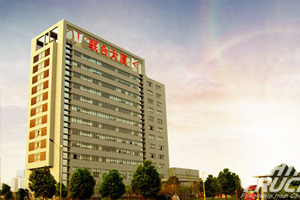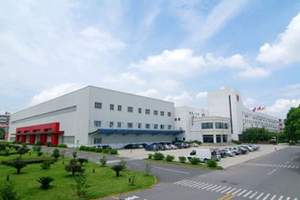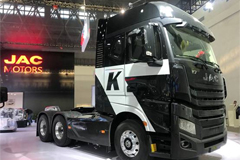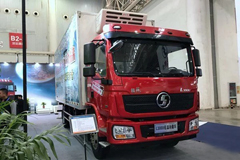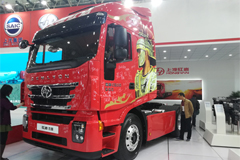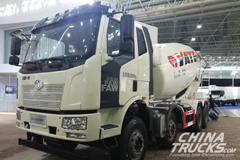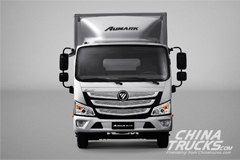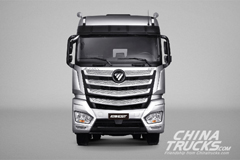China Auto Firms Take on Trade Friction
China will move to ease friction over its auto exports to avoid the trouble it faces in other industries, an economic planner said Tuesday, noting the need to adjust trade and investment policies to reflect changes in the industry.
"In the next three years, the government will be taking measures to reduce trade friction. We are taking lessons from Japan on how to reduce such conflicts," said Chen Jianguo, deputy inspector of the industrial department of China's National Development and Reform Commission.
China's automakers are just beginning to target markets in Europe and North America with products of their own, but policy makers in Beijing are already bracing for a backlash — given the tensions over China's exports of other countless other products.
"Government policy will change according to market trends," Chen, whose commission is Beijing's main economic planning agency, told an industry conference in Shanghai. He did not give specific details.
Chen said he expects Chinese automakers to begin setting up operations in developed overseas markets, such as Europe and North America and to shift away from reliance on joint ventures by joining "global alliances."
With government encouragement, Chinese automakers are ramping up overseas sales, seeking to expand beyond their own hyper-competitive market. They sold 325,000 vehicles abroad last year, mostly low-cost trucks and buses shipped to developing countries.
So far, efforts to expand passenger car sales and production overseas have provoked a backlash in some markets. Geely Group Ltd., one of the largest privately owned automakers, saw its plans for auto assembly plants in Malaysia rebuffed last year.
Russia has likewise balked at letting foreign companies set up auto manufacturing plants, wary of a competitive assault on its flagship automaker, Avtovaz, maker of the Lada and Volga.
"Chinese companies should go global and should go into international markets," Chen said. "The government is encouraging setting up joint ventures for export from China but it is possible that there will be even more trade friction," he said.
It remains to be seen if Chinese manufacturers will have the means and the opportunity to shift production to offshore markets, as Japanese automakers like Toyota Motor Corp. and Honda Motor Co. did in the 1980s as they sought to blunt friction over soaring exports.
Inside China, increasingly fierce competition has brought China's auto industry to a crossroads, as foreign manufacturers and their domestic joint venture partners struggle to reconcile cooperation with competition.
Automakers involved in joint ventures with their competitors can find themselves in a "situation that can be very difficult," said Rudi von Meister, general manager of Iveco China, a truck maker with major operations in China.
Chen chided Chinese automakers for depending on government regulations to force foreign automakers into 50-50 joint ventures — a requirement that has obliged General Motors Corp., Volkswagen AG and other big automakers to share technology and other resources with their eventual competitors in exchange for access to China's potentially huge market.
"If Chinese companies want longer cooperation with foreign partners, they must be strong enough to attract foreign investment," he said. "They should not just rely on the government."
Many in the industry agree on the need for changes in government policies drafted to nurture the auto sector during its infancy.
"The role of the government is still evolving. We need to change it to support growth of the industry in a new stage of development," said Shen Ningwu, deputy head of the China Association of Automobile Manufactures.
Views:0
- Scania Adds Powertrain Production to Its Production Base in Rugao, China 2023-11-01
- China Exported 63,000 Trucks in May, Up 33% YoY 2023-07-11
- SANY Awarded as 2022 Forbes China TOP 50 Sustainable DEV Industrial Enterprises 2023-03-23
- SINOTRUK Participates in the Selection of "National Star of China Trucks" 2023-01-31
- Half of Vietnam Truck Imports Are from China? 2022-10-24
- Daimler Truck Starts Local Production of Mercedes-Benz Branded Trucks in China 2022-09-26
- CATL Announces Its MTB Tech to be Applied to Battery-swapping Heavy Trucks 2022-09-19
- Liuzhou Motor Showcases Three Products at the 19th China-ASEAN Expo 2022-09-19
- CATL Among Top 50 Forbes China Most Innovative Companies 2022-08-26
- Qingling Isuzu Delivers First Batch of VC 61 to Mongolia 2022-05-17
Submit Your Requirements, We Are Always At Your Service.
- Jiefang Partners with FCTS to Develop Hydrogen-Powered Car Transport Vehicles
- Farizon Auto Sets Roadmap for Global Expansion
- JMC Assembles Kaiyun Euro 5 Models in Vietnam
- SuperPanther Teams up with DHL for Sustainable Logistics
- SuperPanther Partners with Steyr Automotive to Launch Electric Heavy-Duty Trucks
- JAC Showcases T9 EV Pickup at 2024 EVA Frankfurt Electric Vehicle Expo
- Zoomlion Reports Record Overseas Revenue Growth for H1, 2024
- Madagascar President Rajoelina Visits Foton Motor
- European Premiere for Kia PBV at IAA Hannover 2024
- SAIC Maxus RV Debuts at Düsseldorf Caravan Show in Germany
- Heavy Truck Sales Reach 59,000 Units in July in China
- Tractor Sales in H1, 2024 Reached 162,100 Units, Up 4%
- China's Truck Export Reaches 351,076 Units in H1 2024
- XCMG Dominates 2024 with Record Sales in New Energy Heavy Trucks
- Mid-Year Pickup Market Report: JAC Exports Up 13%, JMC Exceed 36,000 Units
- Truck Exports in May 2024: China Exported Close to 65,000 Trucks
- Exports of Pickups Reached 22,892 Units in May
- Exports Surge by 157%! DFAC Exports 9,628 Vehicles from January to May
- China's Heavy Truck Exports Rising 58% YOY to 276,000 Units in 2023
- China Exported 507,000 Trucks from Jan.-Sept., Up 21% YoY


